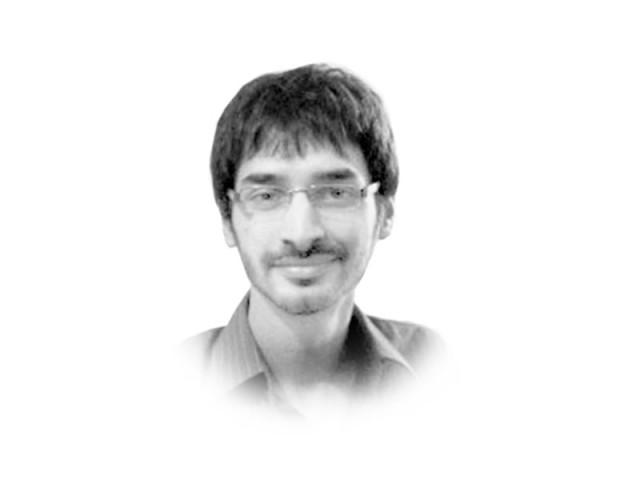Is the internet fuelling social divides?
Pakistani online space lets like-minded individuals reaffirm, solidify their own myopic views and existing divides.

Author Patrick Ness said these troubling words at a recent writers’ conference in Edinburgh. What did he mean by these words? Those who have been regularly visiting The Express Tribune online and other local websites that allow comments or host forums (not to mention Facebook and Twitter) know the answer to this one.
A disturbing trend can be seen in how people engage with one another online. Sure, Pakistan’s emerging online community of over 20 million connected individuals have embraced the ‘democratising’ elements of the internet and are driving debates through comments, blogs and social media — but to what end? Is the medium creating a more democratic, open society?
In an earlier article, I argued that the internet may be emerging as “a system of control that is increasingly designed to present a myopic view of the world” based on how online entities like Facebook, Google and even The Express Tribune tailor-design their online space so you increasingly see only content you like, thus ensuring you willingly remain uninformed about anything you don’t like or (on the surface) aren’t interested in. This is perhaps, not as scary as the social phenomenon of myopia and ‘sectarianism’ within online comments and debates. At least Facebook and Google’s developers can change the algorithms that determine what you see; when it comes to online debate, no one is really in control.
So how exactly are comments sections, Facebook and Twitter creating greater social divides and more extreme, myopic viewpoints? The question seems counter-intuitive but in reality begs closer examination, especially when it comes to a nation as fragmented as ours.
Shias. Sunnis. Ahmadis. Baloch separatists. Sipah-e-Sahaba. The Pakistan Army. The PTI. The PML-N. The MQM. Ultra-nationalists. Liberals. Conservatives. Put members of these loaded terms into a room and invite them to chat — this would approximately mimic what the internet has done for Pakistan’s interest groups by way of interaction — but wait, does it translate into interaction? Not really. The Shias interact with the Shias. The Sunnis with the Sunnis, and so on. The only time one would ever need to interact with ‘the other’ is to attack, often en masse, by way of trolling or online campaigning. Any time one happens to peer into the online activities of ‘the other’, they would see a myopic world of highly motivated, (read: dangerous) like-minded individuals, busy reaffirming and solidifying their own myopic views, thus reaffirming and solidifying the original divides that existed for the peering ‘other’. Is this scenario more likely or the idealistic vision of the groups unexpectedly engaging in a way that leads to social harmony? Anyone who has spent time within the Pakistani online space knows the answer to that question.
As internet specialist and author Clay Shirky points out, the internet can be seen as “just another implementation layer for special interest groups”. Where does this leave the oft-cited ‘silent majority’? Silenced. As Ness further stated in his talk at a writer’s conference, a culture of self-censorship is becoming the norm as individuals and yes, even seasoned columnists and reporters seek to minimise conflict (flame wars), social isolation and online witch-hunts perpetrated by the rabid hordes of a highly motivated minority. Many change their online personas to fit the views of their particular community, further polarising viewpoints. Many others avoid engaging altogether.
A 2012 report aptly titled, “Social media in Pakistan: catalyst for communication, not change” noted that, “The risks posed by social media in Pakistan include their succumbing to the same ideological divisions that afflict Pakistani society and even becoming a haven for extremist online communication.”
I am afraid, much to my dismay, that this is what has happened to large swathes of our online space already.
Published in The Express Tribune, October 6th, 2012.














COMMENTS
Comments are moderated and generally will be posted if they are on-topic and not abusive.
For more information, please see our Comments FAQ